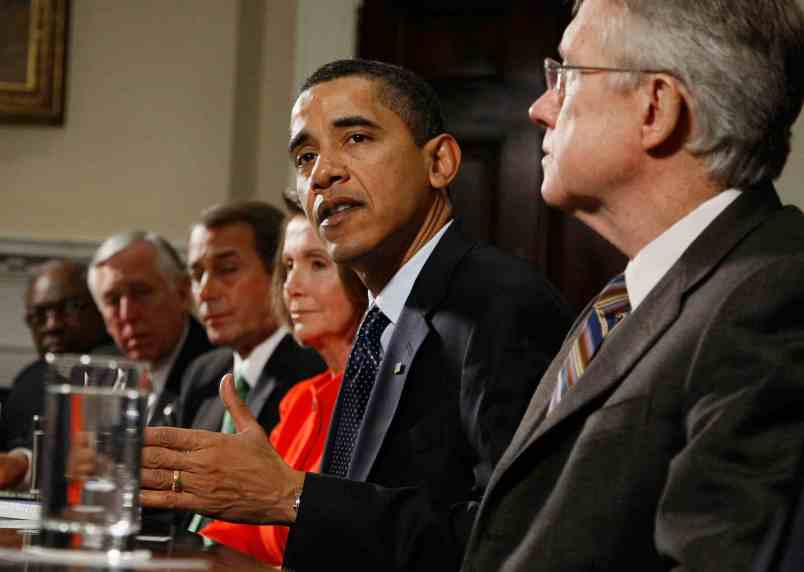Freaked out and angry House Democrats don’t know how to move forward on health care reform. But a significant contingent say it’s time to radically rethink the approach: Instead of passing comprehensive reform, these Democrats say they should break the House’s health care bill into chunks, pass their favorite ones, and send them over to the Senate to see if they can pass.
The gambit is political: get Republicans on the record opposing changes to unpopular insurance industry practices. But it comes with hidden dangers, both politically and substantively. And leading health care experts and advocates say these Democrats need to get real.
One of the main problems is that some of health care reform’s least popular elements are essential to its effectiveness. For instance to guarantee that sick people can get coverage, healthy people have to be part of the insurance pool to spread the risk and keep insurance premiums from skyrocketing.
“The idea of scaled back reform, and particularly of doing insurance reforms by themselves, is a fantasy,” says Richard Kirsch, director of the reform campaign Health Care for America Now. “The public wants to stop insurance companies from denying coverage for pre-existing conditions. You can’t do that without a mandate; you can’t do a mandate without subsidizing coverage; you can’t subsidize coverage without Medicare savings and new revenues. The public wants to end medical bankruptcies – but to do that you need to provide affordable coverage to people and you need to mandate decent insurance benefits and put a ban on annual and lifetime caps. Doing all that requires setting up exchanges and subsidizing coverage.”
Likewise, covering millions of uninsured Americans–many of whom can’t afford insurance on their own costs money. And that means taxes.
“From a policy perspective, a piecemeal approach must confront the most basic reality of the health care market: health care, and thus insurance, is very costly,” says Harold Pollack, chair of the Center for Health Administration Studies at the University of Chicago.
The average annual cost of coverage for a family of four exceeds $13,000. That’s $6.50 per hour for someone working 40 hours per week, 50 weeks per year.
Any serious effort to cover the uninsured must address the reality that millions of Americans will not–often cannot–pay this. The large price tags of the Senate and House bills do not arise from a desire for social experiments or from an inherent love for big government. They arise from the need to provide large subsidies if we are to really cover the uninsured. Enacting the legislation piecemeal does not change this reality. And once one must address this large pricetag, knotty revenue questions inevitably arise.
The “break it up” plan, in other words, could create a patchwork of reforms that don’t amount to a working health care system. And that’s distinct from the piecemeal plan’s political problem: Passing several, individual regulatory reform bills means asking the Senate to act on several bills–the same Senate that, thanks to Republican filibusters, often takes weeks to pass non-controversial legislation. Asking the Senate to pass several bills could mean dragging the health care reform fight on for months. And nobody knows which, if any of them, would pass.
In other words: Be careful what you wish for.






